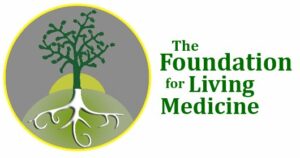
There are two aspects of the relationship between parenting and health. One is the health of the parents, and the other is the health of their children. First, let me address the parental issue, since it is not often looked at, and then, discuss why parental love, for self and one’s children, is the most significant public health factor on this planet.
As the father of five children, born within seven years, and including twins, I know the role that my wife’s and my exhaustion played in our health. We only slept a few hours each evening, as we cared for the kids, prepared formula, cleaned diapers, played with them and watched over them. We were acting out of love, but the fatigue also had its effect upon our immune system and stress hormone levels. The result was that I ended up in the hospital with a severe staphylococcal infection and my wife developed multiple sclerosis.
This awakened me to the fact that one cannot separate one’s health from one’s life. So, I began questioning my patients about changes in their lives that were affecting them, when they developed a new affliction. Their response was, “How did you know that?” I answered simply, “That’s what happened to me.” Because of this experience I have been running support groups for the last thirty years to help people survive life’s difficulties. Remember life isn’t unfair. We are all wounded, but if you know how to deal with the wounds, you are more likely to be a survivor. So, when a disease leads to someone being reborn and their life healed, life’s labor pains become worthwhile and many afflictions are cured.
One of the things that all parents should do is to take time to get away and restore themselves. Every few months, my wife and I would go off for several days, while our friends, family and my patients took our place and shared their time and affection with our children. Everyone benefited from the separation, as our children found a new set of parents who were willing and ready to listen to their problems and love them, while my wife and I had a chance to restore ourselves and relate to more things than diapers, schedules and meals.
Before I discuss how parenting affects the health of our children, let me share the wisdom of Elisabeth Kubler-Ross. She and I became very good friends many years ago. While I was attending one of her workshops filled with anger over all the family problems that I couldn’t fix and all of the diseases that I couldn’t cure, she waited until I was finished expressing my anger, and then she said quietly, “You have needs, too.” Those words have always stayed with me.
If someone in your family asked you to do something that you did not want to do, what would you answer? When asked, nurses have a very hard time saying ‘NO’ to things that they really don’t want to do. What we have to remember is when we say yes to what we do not want to do, we are saying NO to ourselves, and that is not survival behavior.
So, on Monday mornings, adults have more heart attacks, suicides, strokes and illnesses because of their work. They are burning out. When you ask kids what day of the week is bad for their health, they tell you Saturday and Sunday. Why? Because they get so exhausted running around and doing all the things they love to do, that they think that makes them vulnerable. It doesn’t. Do what you love and you are burning up, not out, and a nap will restore you. Do what makes you unhappy and you are being self-destructive. That’s why parental love and self-worth and self-esteem are so important for your health. They empower you to care for yourself and not be submissive.
Children who grow up addicted to food, drugs, cigarettes and self-destruction are not living that way because of a lack of information. What they lack is inspiration and a sense of worth. A study of Harvard students revealed that only one fourth of those who felt loved by their parents developed a major illness by midlife, while well over ninety percent of those who didn’t feel loved had. To quote someone I know, “My mother’s words were eating away at me and maybe gave me cancer.” Her mother constantly belittled her accomplishments and only dressed her in dark colors. The problem is that up to the age of six, a child’s brain wave pattern is similar to that of a hypnotized individual. By the time a child becomes conscious and capable of evaluating their parents’ words, they have a real struggle on their hands to free themselves from the negative messages most parents deliver.
What parents are often doing is literally taking their child’s life away as they impose behavior patterns, careers and more. The sweet identical twin sister who pleases Mom and Dad and the family and internalizes anger is far more likely to develop breast cancer than her little devil of a sister who is always doing her thing.
So, parents please love your children even when you do not like what they are doing. Do not attack them with words like, “There’s something wrong with you.” Let them know you do not like their behavior, while you love them. The opposite of love is indifference and aggression is a normal feeling. But the unloved and rejected child will act out and turn healthy aggression into violence and destruction, rather than sports, work and hobbies, in order to get attention and revenge. A child can be a rebel in healthy ways and not as a bully. They can empower love rather than love power like Gandhi or Mother Teresa.
If I had to summarize how to raise a healthy child I would suggest that you get a puppy and go to a veterinarian and ask how to raise your puppy. Then, go home and do the same thing with your child. To quote some vets I know, “Love, trust, respect, consistency, discipline, affection and exercise.” Sounds good to me. For more details, read my book, Love, Magic & Mudpies, about how to raise children to feel loved, be kind and make a difference.
Also, do get a pet because when you a pet a dog or cat, your oxytocin and serotonin levels go up and you bond with other people. Survival rates for many diseases are higher in homes with animals. We had a house and yard full of every species of animals and our children developed a reverence for life and connections, which helped them to: feel needed, meaningful, thrive and healthy.
I also recommend that you give your children a week of health days every semester of the school year. I did. That teaches them that they do not need to be sick to get a day off, or sick day; but that they can come to their parents and say they are taking a health day to enjoy life and stay well.
Last but not least, be patient. Many years ago when our children were wearing me out I went to a healer for help. She told me that if I brought her a hair from the chest of a bear, which lived in a cave on the hill near us, she could make a potion which would calm our children. I spent six months befriending the bear with food, and when it finally accepted my presence, I walked up and pulled a hair from its chest. When I handed it to the healer, she threw it into the fire. I was more than just upset, telling her what I had to go through to get the hair and the time involved.
She turned to me and said softly, “Now go home and be as patient with your children as you were with the bear.”
